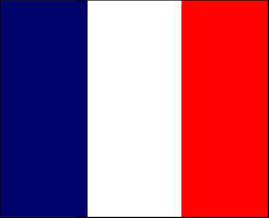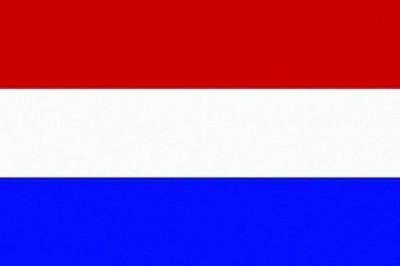Translate This Page
Human activities with regard to animals and their implications (and why we should stop them)
(Intensive) Animal farming and slaughter for meat/organs and other animal products like dairy products and eggs
The biggest and most widespread example of speciesism is, of course, the eating of animals with over 50 billion land animals and an even greater number of aquatic animals killed every year. Why is this wrong? In our opinion one reason that it's wrong is because it deprives the animal of its right to life. In addition, many of the animals used are raised under conditions that make them suffer as these conditions don't fulfil their physiological or biological requirements. They are then slaughtered under conditions that cause them even more stress and suffering. There is enough information available on the internet that is easy to find, so we won't dwell on the gory details here.
Some of the excuses used by people to justify eating animals are: it's natural, people have been doing it for years, the Bible says we can, animals are inferior beings, it's legal, it's acceptable, it's necessary for the economy. These were also some of the justifications for slavery and they are just as invalid as an excuse for eating meat as they were for keeping slaves.
Of course, not everybody can be persuaded by arguments based on ethics or morality, especially if they don't accept the concept that animals are sentient beings, so here are a few more arguments against eating meat or animal products.
Eating meat causes hunger elsewhere. Globally agriculture provides enough food to feed everybody. However, a large number of people go hungry. Partly this is due to problems of distribution, but it is also caused by diverting crops to the production of meat. Estimates suggest that the food fed to livestock would feed nearly four billion people. It's inefficient to give crops to animals and then eat the animals, because the animals use some of the nutrients and energy in the crops for themselves. For beef, it can take up to 15,000 calories of crops to produce 1,000 calories of meat. It's less for other species, poultry being the most efficient at about 2,000 calories of feed per 1,000 calories of meat.
Source : Compassion in World Farming
There is more profit to be made in selling crops for feeding livestock than for feeding people in many poor countries. So some countries where people are starving actually export food. Don't you find that more than a little bit crazy?
But if the plight of other people isn't a good enough reason to give up meat and animal products, how about the environment? Because raising livestock requires more crops than using the crops directly to feed people, it has larger environmental impacts: more water, fertiliser, pesticides, herbicides, fuel for transport, more land etc. It also requires greater use of antibiotics and hormones. And, as we all know, "What goes in, must come out" so there are the waste issues to deal with too: from the flatulance of ruminants and greenhouse gas emissions from livestock to the holding lakes of slurry from pig farms and hormones in river water, rearing livestock is causing more and more environmental damage.
But if even the environment isn't a major concern, how about money? A vegan or vegetarian diet is cheaper than a meat based one. It's pretty obvious really, even if the chicken farmer can buy their crops cheaper than you, they need a lot more of them. There're also the other costs to take into account: buildings, fuel, electricity, staff, transport, slaughtering and the euphemistically called "processing" which means chopping up dead bodies into a shape that the customer finds acceptable.
And last but not least there are the health concerns. Medical studies can be frustrating for someone with a technical background: people are different, so conclusions drawn from one study may not be applicable to other people. It's not like engineering where if you build one plane and it flies, then all the identical planes will fly too. That's why there seems to be no end of conflicting advice about what's good for you and what you should avoid. However, the World Health Organisation recently classified red meat as probably carciogenic and and processed meat as carcinogenic. Source: The World Health Organisation
One thing that does seem clear is that as countries become more prosperous and the amount of meat eaten by people increases, the population tends to become more obese. (You can read more about this on the page: Proteins) .
Another area of concern is the over use of antibiotics which is leading to bacteria becoming resistant.
Becoming a vegetarian or even just cutting down on the amount of meat eaten will, of course, save the lives and prevent the suffering of all the animals that would otherwise have been raised and slaughtered for consumption. However, eggs and dairy products also include a portion of suffering.
Cows, goats and sheep only produce milk once they've had a baby. For the dairy farmer, most of these babies are unwanted as the milk is intended for them and if they drink it, the farmer can't sell it. Many will be killed soon after birth. A small proportion of the females may be useful for replacing herd members that become less productive, but the rest of them and the males are of little worth to the farmer. Some calves may be kept for veal and slaughtered after a few months. All would have been separated from their mothers at a very young age: a source of stress and suffering for both. You can read more about dairy farming on the next page.
The egg industry also has a major problem with males: they don't lay eggs. Apart from a few cockerels needed for breeding purposes, once they have been sexed, the day old male chicks are condemned to death. Once again the internet can provide a number of videos showing the brutal fate that awaits these chicks.
By adopting a vegan diet, you can help put an end to these practices that only persist because someone is willing to pay for the products. There are many sites on the internet that give you ideas and tips on how to go vegan, like this one for example: The Vegan Society .
Next page :
- (Intensive) Animal farming and slaughter for meat/organs and other animal products like dairy products and eggs
- (Intensive) Animal farming (Mammals, Birds and Reptiles) for their skin (leather) and fur
- (Intensive) Animal farming for wool
- (Intensive) Goose farming for down
- Fishing and fish farming
- Circuses, Zoos and Marine Parks
- Animal testing and animals used in medical or veterinary universities
- Hunting, canned hunting and trophy hunting
- (Cruel) Animal Sports like bullfighting and other fiestas, cockfighting, horse racing, greyhound racing, sled dogs racing, pigeon racing, pig wrestling, rodeos etc.
- Pets
- Horse and pony riding
- The use of animals in films
- Zoophilia
- Anti-speciesism and climate change
- What can you do?

